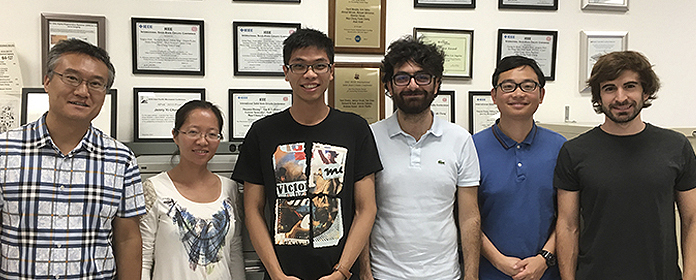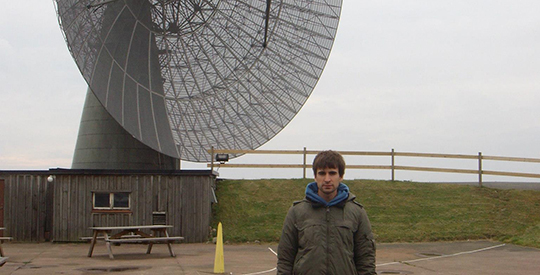News
LATEST NEWS AND EVENTS FROM THE SCHOOL OF ENGINEERING
"The experience at the University of California was beastly. There are the best from class, of all places, together."
Find out what doors the Degree Telecommunication Systems Engineering program opens for you.

At just 6 years old, David del Rio (Tecnun'2013), was already "tinkering" with everything he could get his hands on. He remembers that he got to fix "an old Mac, one of those big ones", so characteristic of Apple in the 90s: "I learned to open it, fix it, format it, change the hard drive...", says this Donostia native. "I liked cell phones and I liked to clear the radios to see what was inside and how I could improve it," he continues. That's why he decided to study telecommunications engineering.
In Sweden, while on Erasmus at Chalmers University of Technology, he discovered that "being researcher was more than just teaching at the university. Chalmers changed his perspective: "They were working with European Space Agency (ESA) laboratories on issues related to environmental monitoring, space applications...on things I didn't even know existed," says Del Rio.
In the fifth year of his degree, still in a sea of doubts, he contacted Roc Berenger, a professor at the School, looking for advice. He wanted to do the project de Fin de Degree while finishing his studies and accepted the teacher's proposal to collaborate in the Europeanproject "E3Network", which consisted of creating circuits for future mobile networks. "Current 4G networks do not have enough bandwidth for the large amount of data transmitted by all devices. It's no longer just a mobile that sends a text message. It's a watch that gives you information on the spot, an electronic system embedded in a dog's collar, in an elderly person communicating with a hospital, or an autonomous car that needs to communicate with the one next to it," explains this researcher.

Del Rio not only accepted, but at the end of his studies, he decided to continue with the 3-year project and to prepare a thesis on millimeter wave circuits, the frequency range that will be used by these networks. He is currently continuing his research work at Ceit-Ik4.
He has fantastic memories of the thesis. He published 4 papers as first author in journals and 2 in congresses. The 6-month international stay at UCLA (Los Angeles, California) enriched his academic experience and staff. "It was beastly in every aspect. Academically incredible. There are the best of the class from everywhere, together. Besides hard workers they are super ambitious, and also good people."
The question is: would you go back? "To work there for a while, yes. To work with them from here, of course. But to live long deadline and raise a family there probably not. You live better in Europe."
